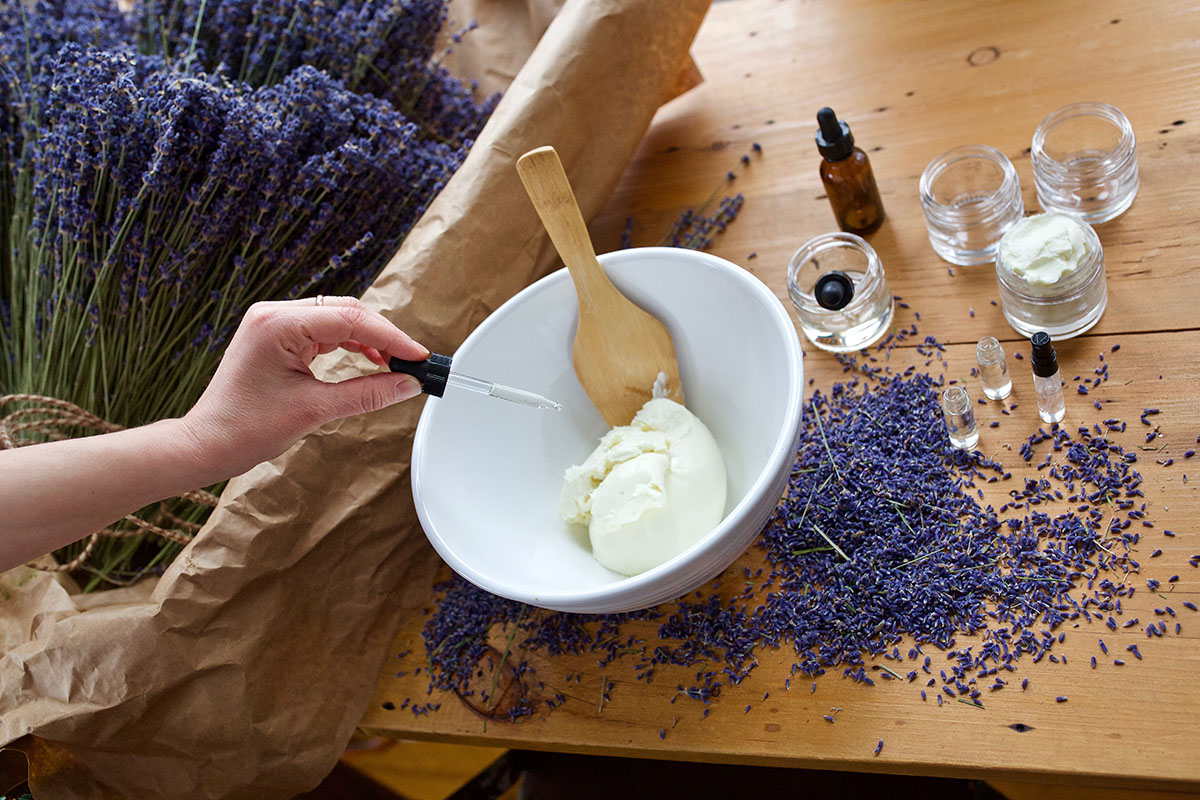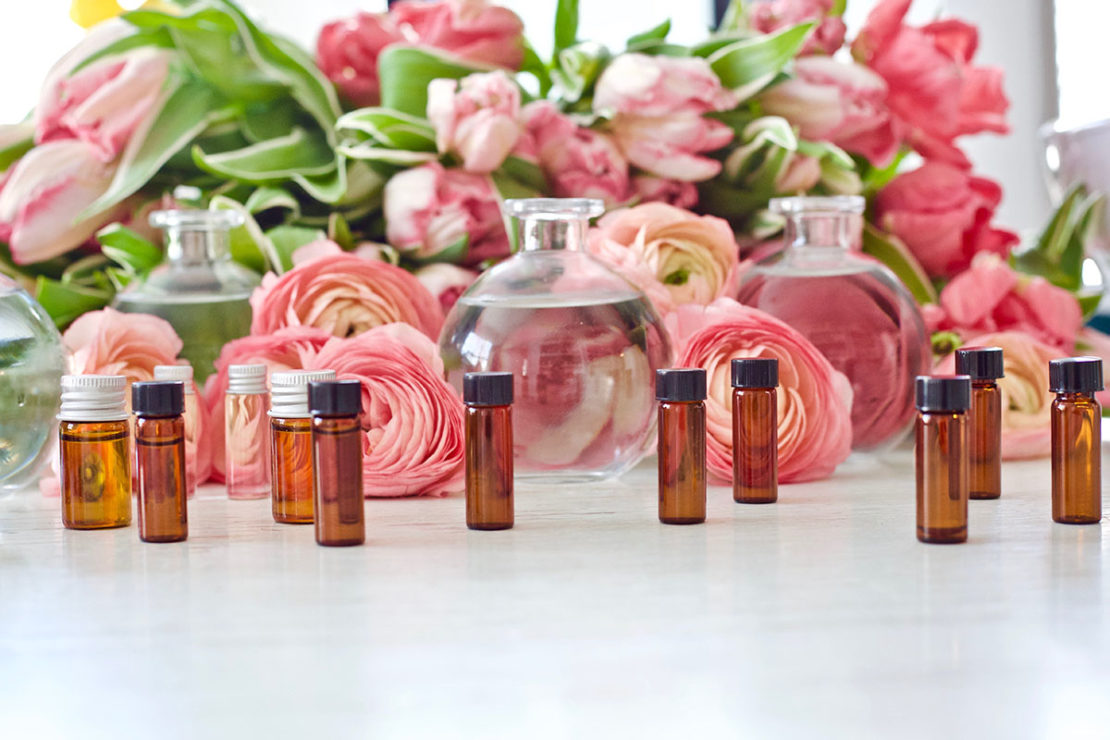
Essential Oil Myths And FAQs Answered
With all of the information in circulation regarding essential oils, you may find yourself repeatedly running into information that seems too-good-to-be-true or that directly contradicts other information you find. What can you believe? Unfortunately, there is some information out there that is simply incorrect. If you look up “mythbusting essential oil” in a search engine, you will receive quite a few hits.
Even beyond the essential oil myths, there are still questions many of us have at some time or another. Questions about using essential oil diffusers, using essential oils (EOs) with young children, and who is qualified to teach about essential oils show up repeatedly on social media. Be sure to keep asking all of your questions. It is only by asking a lot of questions that you will find good answers.
In this post, you will find answers to several common essential oil myths as well as answers to a few frequently asked questions about essential oils.
14 Common Essential Oil Myths
Myth #1: Essential oil purity = Essential oil “quality”
The chemical profile of essential oils can vary either slightly or greatly from batch to batch and from one geographic region to another. Different distillation processes might also affect the balance of chemicals in any given essential oil. This means that one ginger essential oil, for instance, might address your issue better than a different ginger essential oil. This does not mean that one is pure and the other is not. It might mean that one is a higher quality than the other, but it might also simply be that the chemical profile of the first ginger essential oil fits better with what your body needed than the second one did. “Purity” is objective—there has been no tampering with, modifying, or adulteration or the oil. “Quality” is subjective.
Myth #2: “Therapeutic grade” essential oils are the best, or “therapeutic grade” oils do not exist.
There is no regulatory or certifying body that grades or certifies essential oils in any way. Essential oil retailers have created phrases and terms to make their products stand out, but they are all simply marketing gimmicks. The term is irrelevant, as oil quality, and therefore its usefulness is determined by the specific oil’s chemistry. All pure essential oils have some therapeutic ability.
Myth #3: Essential oils last forever, or essential oils get better with time.
All essential oils have shelf lives, anywhere from about one year to about six years, depending on the oil and its exposures to air, light, and warmth.
Myth #4: Essential oils were used in Ancient Egypt and are mentioned in the Bible.
Aromatic oils were used in both Ancient Egypt and are mentioned in the Bible, but there is no evidence that those people used true essential oils. You certainly would not pour a cup of essential oil on someone’s head to anoint him or her! The oils found in pyramids and that are mentioned in the Bible are usually infused herbal oils, especially olive oil. Distilled essential oils, as we know them, are a more recent creation.
Myth #5: If you develop a rash or redness on your skin after applying an essential oil it means your skin is detoxing.
This is a very dangerous myth. Redness or rashes show that the skin is irritated and having a negative response to the essential oil. Stop using that essential oil immediately, or dilute the oil much more before trying again.
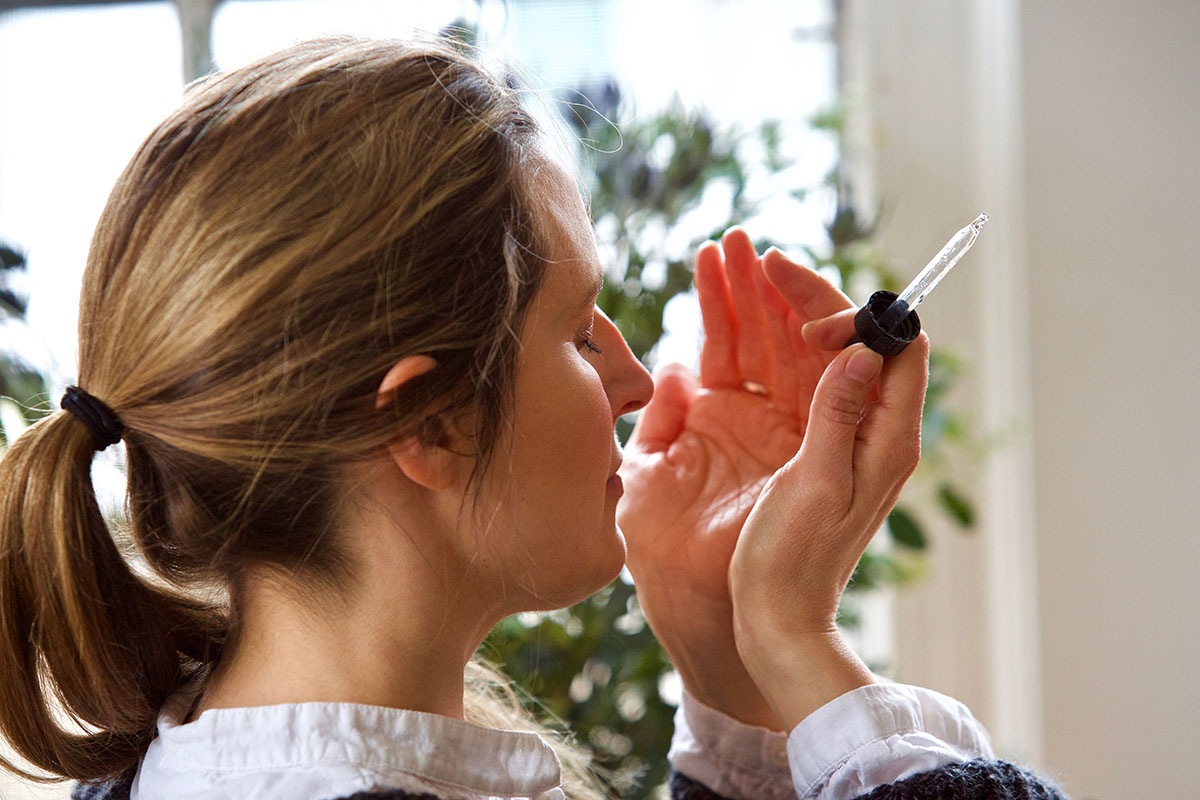
Myth #6: Your body will tell you if you need a particular essential oil by whether or not you like the smell.
Whether or not you like the smell of an essential oil is totally unrelated to whether or not that essential oil might help you.
Myth #7: Pure essential oils cannot freeze. If they freeze, that shows that they are not pure.
All liquids can freeze at some temperature, even essential oils. If your essential oils freeze, allow them to return to room temperature naturally before trying to use them. Do not try to heat them up in order to return them to a liquid state.
Myth #8: The order in which you blend oils affects how the blend smells and its final chemistry.
This is simply not true. The blending order does not affect the final product either for aroma or chemical profile.
Myth #9: If a company writes “For external use only” or “Not for internal use” on their bottles, it is because their essential oils are either lower quality or are not pure.
Such comments say nothing at all about the oil or the company, either good or bad.
Myth #10: Herbs and essential oils from the same plant will have the same action in the body.
Not necessarily. Their safety concerns may be different as well. One example is cinnamon bark and cinnamon leaf, both Cinnamomum zeylanicum. Their main constituents are very different from each other, the former being high in cinnamaldehyde while the latter has eugenol as its primary constituent.
Myth #11: The best essential oils come only from the “first distillation” or the “first pressing” of an essential oil.
The plant matter is not distilled multiple times. It does not work that way. In the special case of ylang ylang (Cananga odorata), there is only one distillation, but there may be several different collections of the oil during that one distillation, which is why there is I, II, III, and complete.
Myth #12: Frankincense essential oil contains boswellic acids.
Boswellic acid molecules are too large to come through in the distillation process. There are no boswellic acids in any frankincense essential oils.
Myth #13: Essential oils contain vitamins, minerals, and hormones.
No. None whatsoever.
Myth #14: Essential oils are safe because they are natural.
It is normal and NATURAL for lead or arsenic to be in natural sources of water. Just because they are natural does not make them safe. The same applies to essential oils. “Natural” and “safe” are not synonymous.
If you would like more information regarding essential oil myths, Robert Tisserand has shared his thoughts on some of the less-commonly spread essential oil myths here.
7 Essential Oil FAQs Answered
1. Can essential oils cure my cold?
While some essential oils have demonstrated their ability to prevent viruses from replicating or spreading, this has only been in petri dishes. There is no evidence to show that essential oils can actually cure a cold. However, essential oils may help in other ways, such as easing feelings of stuffiness or soothing an irritating cough.
2. I have a lot of allergies. Can I still use essential oils?
Depending on your allergies, there may be some essential oils you can use and some you might need to stay away from altogether. Some people who have allergies to artificial fragrances find they do not react to essential oils. It is always a good idea to trust your body and err on the side of caution, but if you wish to try an essential oil, waft a small amount near your nose and see how your body feels afterward. You can also do a patch test with a diluted essential oil on the inside of your elbow to see if you have a reaction to a topically applied oil. If you have any topical reaction (redness, irritation, itching), wash the area with soap and water and apply a vegetable oil, such as olive oil, to the area. Discontinue use of that essential oil product immediately.
3. Can I use essential oils with my baby? (Ages 0-2)
This is a controversial topic with no definitive answer. If you wish to consider this, keep a few important points in mind.
- Babies absorb more through their skin than adults, which means anything used with them should be very, very dilute, such as 0.25%. Even diffusers should be used with caution, at a low level, and with plenty of ventilation.
- Babies cannot metabolize complex chemicals as well as adults, which puts them more at risk for having a negative reaction.
- Babies are exposed to more toxic substances, since they are often close to furniture and the floor (off-gassing and pollutants tracked in on shoes), plus they frequently put their hands in their mouths. Their bodies are having to process a lot already, so why add to their load?
A question to ask yourself is: Which is the greater risk to my baby – a stuffy nose or a possible negative reaction to an essential oil?
An alternative to consider is to put the diluted essential oil on the parent who is holding the baby, which will allow the baby to be exposed to the essential oil in a safer way. If baby reacts negatively to the oil, baby can be removed from the situation and the oil washed off more easily than if the oil were applied directly to the baby’s skin. CAUTION: Do NOT use peppermint (under age 3) or Eucalyptus essential oil (under age 3 months) with babies (Tisserand, n.d.).
Lauren Bridges has also written an excellent article on the Tisserand Institute website regarding the use of antimicrobial oils with children. This article will empower you to make informed decisions about when to use essential oils with your children and in your home around your children.
4. Can I skip herbs and just use essential oils instead?
Not in all cases. Essential oils are just one form of plant extract, which makes them a member of the herbal family, not a replacement or substitute for herbs. Herbs come in many forms—infusions and decoctions, glycerites, tinctures, powders, and whole herbs (either fresh or dried), where each form is best suited to particular situations. Similarly, essential oils are also best suited to particular situations but not necessarily all.
For example, herbs are preferable in many instances over essential oils when internal use is being considered. Essential oils are highly concentrated, which is part of what makes their safe internal use more complex than what we can present in a brief article. Children under six years of age should not use essential oils internally at all, and others should seek the guidance of an experienced practitioner for internal use of essential oils. Instead, there are some herbal teas that are frequently and easily used with adults and children, even young children, with great success, soothing tummies and minds. Another example would be in some instances where a compress provides the best relief. A compress made with herbs is highly effective, yet less likely to cause skin irritation than a compress made with essential oils.
Herbs and essential oils can also be mixed for enhanced effect. Adding an appropriate essential oil, such as lavender (Lavandula angustifolia) to an infused herbal oil such as Calendula-infused olive oil can enhance the properties of each, making a more effective end-product (skin-soothing oil) than either of the individual extracts alone.
Essential oils are a valuable part of your herbal toolkit, and learning about both herbs and essential oils empowers you that much more to help yourself and your family. Essential oils may be used alone or sometimes in combination with herbal extracts, making both herbs and essential oils valuable allies in maintaining our health and wellness.
5. How much education do I need to teach others about essential oils?
How much education do you need to teach any subject? Usually, to truly teach others a subject, you should have mastered a certain level of knowledge and competence in that subject before you teach it. Would you teach swimming just because you had been swimming in lakes and ponds all of your life? Would you teach how to drive a car when you have only just received your driver’s permit? Would you be allowed to teach high school biology after taking a high school biology course? If we would not think it acceptable to teach any of these subjects after only taking one rudimentary course, why would we think it acceptable to teach about essential oils after hearing a few lectures, attending a few seminars, or reading a few books? Why do we accept essential oil teaching from people who have just gotten the material they are teaching “from this book”?
There is no definitive answer to this question. One does not have to have a formal education in a subject to be able to teach that subject well, but one does have to have a significant amount of informal education, experience, and/or formal education in order to do so. Once you feel very confident that you fully understand both applications and safety for some essential oils in certain, specific situations (e.g., certain uses, certain populations), then you might consider teaching within that area of your expertise. You might write a blog post about using lavender with children, or choosing EOs for occasional sleeplessness, for instance. Do not try to teach lavender essential oil chemistry if you do not understand it or have had very little experience with it yourself.
There are many high-quality aromatherapy books and free “introduction to essential oil” courses. At the very least, read some of the respected aromatherapy literature and take a couple of the introductory courses available on the internet from reputable teachers before you try to teach any essential oil information yourself. The key words here are “respected” and “reputable.” Unfortunately, there are even doctors on the internet who have not adequately educated themselves before publishing large amounts of inaccurate and misleading information. You do not want to be one of “those” teachers who pass on inaccurate or unsafe information because you, yourself, have not studied the subject adequately or from appropriate sources.
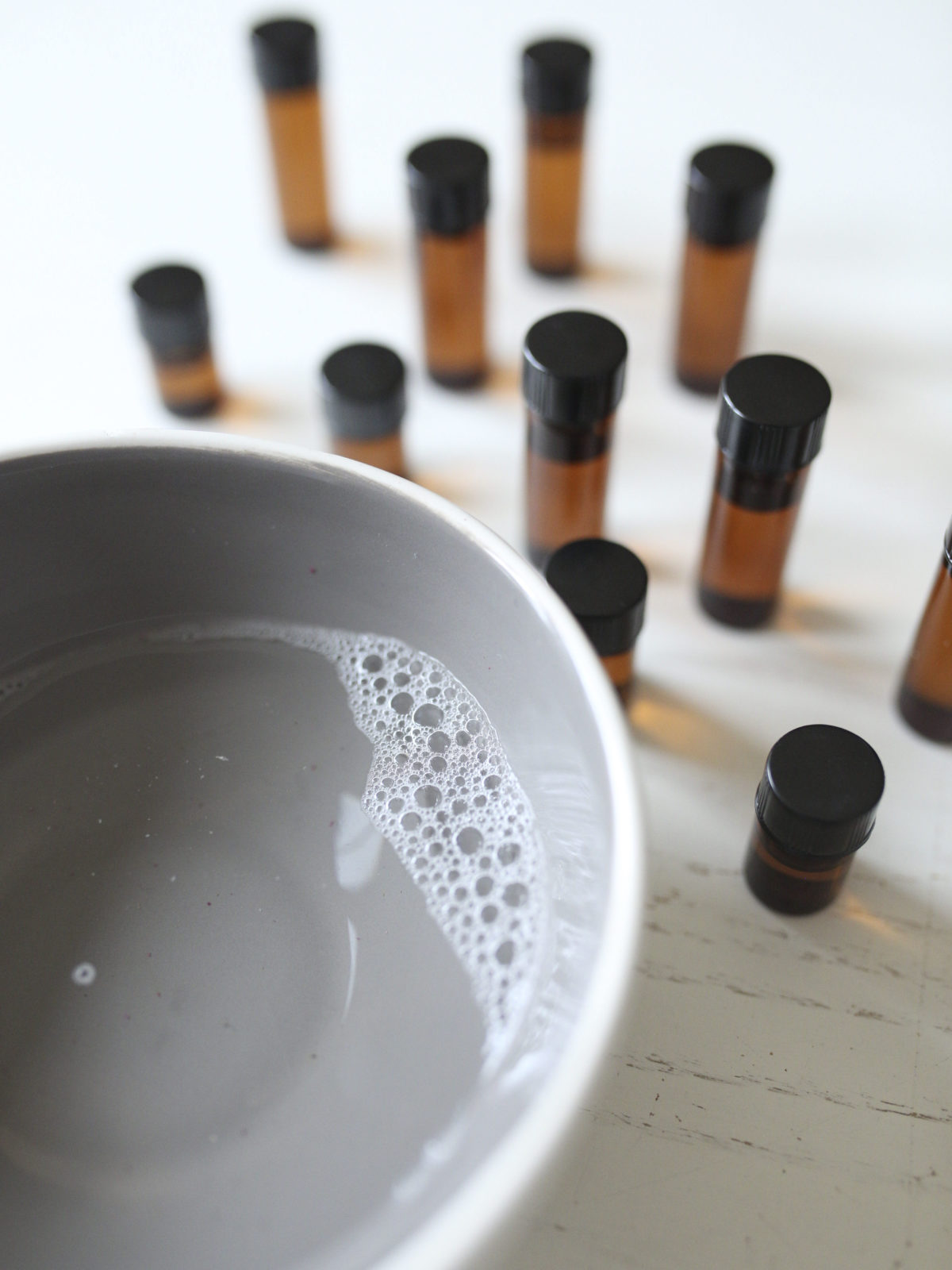
6. Is it bad to run a diffuser full time to scent my home?
Yes, and no. There are definitely different scenarios that fall under this question. There are diffusers that have built-in timers, so they diffuse for a set period and stop for a set period. They may or may not turn off automatically. When placed on their lowest settings, with the smallest amount being diffused for the shortest amount of time and with long periods in between diffusing sessions, these diffusers can be left running. The laundry room, the room with the cat’s litter box, or a musty basement are all good places for one of these diffusers.
However, generally speaking, there are several reasons why running a diffuser full-time is not a good idea.
- You will eventually stop smelling the aroma anyway if you are using it as a nice scent. You will smell it more if you diffuse for short periods of time spaced out throughout the day.
- Because you will stop smelling the aroma, you may think the diffuser is no longer diffusing essential oil and may add more to it. This can cause you to diffuse too much, which may irritate you or your family members.
- You can easily build up too much essential oil in the air over time, sometimes without even noticing. You might start having an itchy throat or finding your eyes are irritated, yet since you can no longer smell the essential oil, you may not associate it with too much oil in the air. This is even more likely with diffusers and vaporizers that do not use water but send the essential oil directly into the air.
- Constant diffusing can be overwhelming to pets and children much sooner than to adults. Not only are pets and children more sensitive, but they are physically closer to the air space where the diffusers usually sit, causing them to inhale much more of the diffused oil than a taller adult. Be sure that you have good ventilation in areas where you are diffusing around pets and children, and that the pets and children have the ability to leave the area if they become uncomfortable in any way.
If you wish to allow your diffuser to run full-time, make sure it turns off automatically when it runs out of water, diffuses on an on-off schedule instead of steadily, and is in a room that is well ventilated. For diffusers that run constantly, plugging the diffuser into a timer can help you control the diffuser’s output. Never allow a candle-style diffuser that has an open flame to burn unattended.
7. Can essential oils cure cancer?
This is, perhaps, the most controversial of the questions people frequently ask. There is also a tremendous amount of misunderstanding of the information that is available. Myth #12 was about whether or not frankincense essential oils can contain boswellic acids. It is boswellic acids that research has connected with the potential for future cancer treatments, yet because of the essential oil myth, people extrapolate that to mean that frankincense essential oil also has that potential. People even go so far as to say that frankincense does cure cancer. Please do not follow this extreme line of reasoning.
Research has demonstrated several essential oils’ abilities to somehow block tumor growth or even decrease cancer cell growth in petri dishes, so there is the potential that someday there may be an essential oil therapy for cancer. Right now we are a long way from that reality, with many steps left to be determined, including a method by which the essential oil constituents can be transported directly to the cancer cells in order to have their effect. Essential oils may also have a protective effect and may protect cancer cells, and can interact negatively with cancer treatments. For these and other reasons, most aromatherapists and aromatherapy safety experts recommend that you abstain from essential oil use while undergoing cancer treatment.
There is hope for the future, but we are not there yet. No, as of right now, essential oils cannot cure cancer. Be sure to do careful research before choosing whether or not to use essential oils in any manner while undergoing any kind of cancer treatment, as in most cases essential oils should be avoided during this period of time.
Finally
There are some current issues and topics in aromatherapy about which even the experts might disagree. Sometimes it is difficult to identify which information falls into this category. If you read enough information on both sides of any aromatherapy issue, you will quickly determine which parts may be opinion and which parts may be factual or inaccurate. And some of this information is such that it may apply to different people in different ways, depending on sensitivities, previous experiences, degree of safety concern, family dynamics, etc.
However, there is also quite a bit of genuine misinformation and misleading information out there, and you should not allow yourself to be caught off-guard by it. These essential oil myths are everything from simply untrue yet harmless, to downright unsafe, so when you learn something new in aromatherapy, be sure to double check it, especially if you have any doubts or questions about the information. The information in this post will withstand your scrutiny if you research further to be sure this information is accurate. Be sure that any other essential oil information you acquire can also withstand your careful scrutiny and questioning.
There are also many questions that people frequently ask regarding essential oil usage. If you have a burning question which has not been addressed here, but sure to ask someone knowledgeable. The Herbal Academy also has a collection of articles on various aspects of essential oils, so be sure to check them all out. Essential oil information is also included in Herbal Academy courses. Keep your eyes open for future blog articles as well. Beyond that, there are several online aromatherapy schools and professional associations (e.g., NAHA, AIA, IFPA) offering in-depth information and training in essential oils.
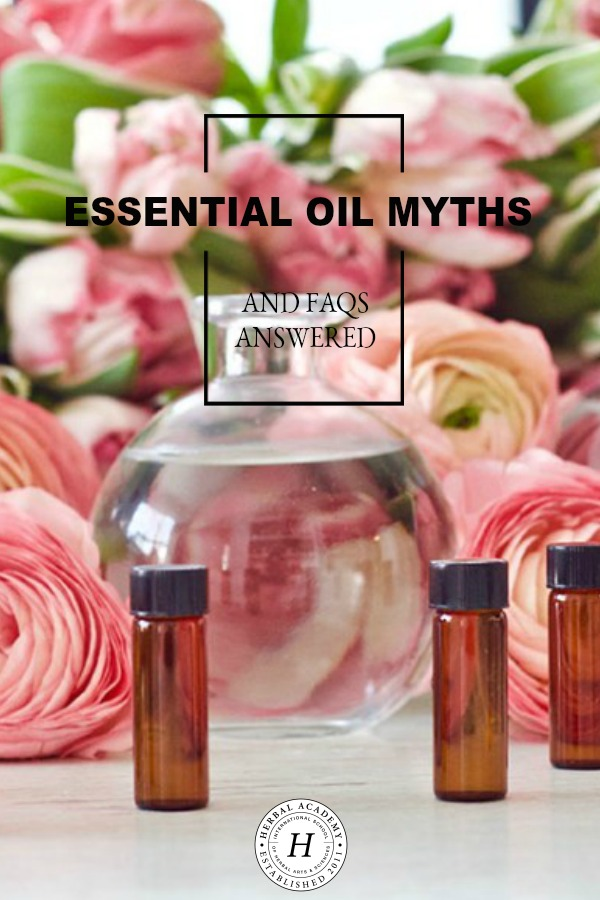
REFERENCES
Tisserand, R. (n.d.). Peppermint and eucalyptus for children. [Online Article]. Retrieved from http://tisserandinstitute.org/learn-more/kids-inhalation-safety/

